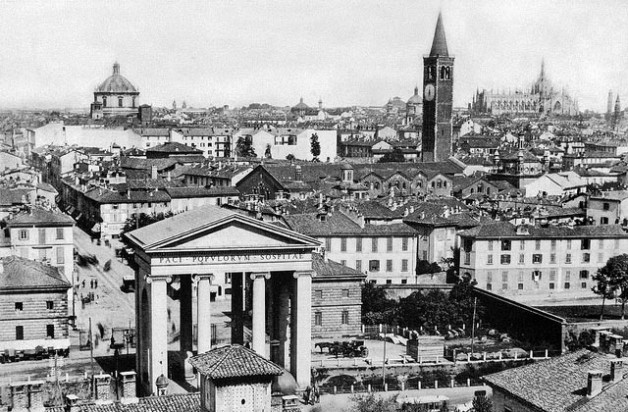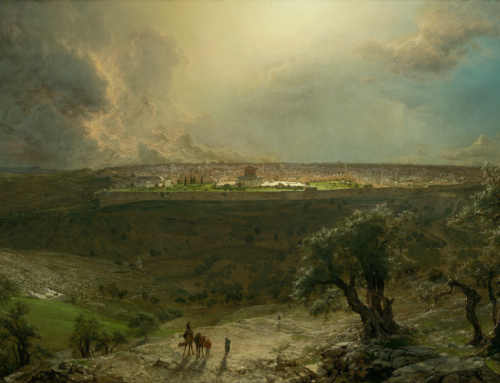Choosing a name is a difficult task, whether it is undertaken by parents naming their child, postulants proposing a religious name, or pontiffs choosing their papal patron. Is it better to choose a name that is common, or unique? Will my child be better off as one of the 17,030 Jaydens born in 2010, or would he be better of as one of the 196 Sheldons? Should I ask the Novice Mistress for “Sister Pat,” or show my admiration for Holy Father Dominic by going for “Sister Ebur Castitatis?” I know I’m not supposed to be “Peter II,” but should I stick with “Benedict XVII” or go for “Pius XIII?”
To provide some guidance in such quandaries, the Church has traditionally taught that it is of great value to bestow the names of saints on those being baptized (and, by extension, those being confirmed, entering religious life, or receiving supreme and universal power over the Church). This is for two reasons: first, because saints are models for those who bear their names, and second, because saints are guaranteed to act as intercessors for those under their patronage. As the Catechism states, “The patron saint provides a model of charity; we are assured of his intercession” (CCC 2156).
A patron saint offers a concrete model of holiness, a particular instantiation of the universal call to holiness. It may well be that a patron saint cannot be strictly imitated in every respect—a married man, for instance, cannot strictly imitate a celibate patron—and yet the patron’s model of charity is principally inspiring in its very particularity: this saint lived a life of charity by doing those particular things and receiving these particular graces from God. Furthermore, the association of an individual with a particular saint establishes a bond between the two persons. Although it may feel like a one way relationship, the Church assures us that the saint is interceding for us, spending her heaven doing good on earth, not just in general, but for me in particular.
One example of such fruitful patronage may be found in the life of Blessed Christopher of Milan, a fifteenth-century Dominican friar whose feast is celebrated by the Order of Preachers on February 20th. According to a recent biographer, “The austerity of his life and his zeal for souls led an ancient chronicler to say of him: ‘He was truly a Christ-bearer, for he carried Christ not only in name, but in his heart and on his lips.'” Given that “Christopher” derives from the Greek word for “Christ” and the Greek verb meaning “to bear” or “to carry,” we might wonder: was the ancient chronicler’s statement anything more than a pious commonplace that could just as well have been applied to anyone who happened to be named Christopher? On the contrary, his description was a very meaningful one, as we shall see.
During his lifetime, Christopher was well known for his zeal in fostering devotion to the saints. Thus, we may be sure that he would have been a diligent reader of The Golden Legend, which was written by his thirteenth-century Dominican confrère, Blessed Jacob of Voragine. The Golden Legend, a collection of legends and lives of saints, was the second most widely read book in the Middle Ages—after the Bible. In this text, Christopher of Milan would have read the following “etymological summary” of his third-century patron, Saint Christopher:
Before Christopher was baptized, he was called Reprobus, meaning outcast, but afterwards he was called Christophoros, the Christ-bearer. He bore Christ in four ways, namely, on his shoulders when he carried him across the river, in his body by mortification, in his mind by devotion, and in his mouth by confessing Christ and preaching him.
Thus, the chronicler’s description of the fifteenth-century Christopher of Milan as “a Christ-bearer [who] carried Christ not only in name, but in his heart and on his lips,” is a clear allusion to the description of the third-century Saint Christopher found in The Golden Legend.
But this is not just a matter of holiness by association. Christopher of Milan was famous in his own right for his devotion and his preaching. To take one of many examples, he was known for arranging that the hebdomadarian (that is, the priest who was called upon to officiate at the community liturgy throughout a given week) should be temporarily freed from all other duties so as to devote himself wholeheartedly to his liturgical service as alter Christus. As for his preaching, he was known for giving a sermon on the text of the gospel proper to each day’s Mass, rather than on his own choice of text. And thus he bore the words of Christ “on his lips.”
When we read Voragine’s description of Saint Christopher, the third-century martyr, we are also, in a very real way, reading a description of his fifteenth-century Dominican “protégé,” Blessed Christopher of Milan—who would himself have used Voragine’s text to come closer to his patron saint and to God. Thus we learn that it is possible to imitate a saint, that a saint’s life and works can, and often do, serve as inspiration for living a life of charity. Moreover, we can be assured that Blessed Christopher received his patron’s heavenly aid in his efforts to persevere in charity.
It is true, of course, that baptized children (along with religious and popes) are not required to receive saints’ names, so long as the name selected is not foreign to Christian sentiment—but the life of Blessed Christopher teaches us that it sure can help.
✠
Image: Late Nineteenth-Century Milan (The tall spire on the right marks the Basilica of Sant’Eustorgio, where Blessed Christopher received the habit.)
Liturgical note: Contrary to popular belief, the Church has not “surpressed” the July 25 feast of St. Christopher, but simply left it to “particular calendars” in the 1969 revision of the General Roman Calendar. His feast is still celebrated in certain places in the Ordinary Form of the Roman Rite on July 24, and it is observed as a “commemoration” in the Extraordinary Form of the Roman Rite on July 25. The feast of Bl. Christopher of Milan was originally celebrated on March 1, but was later transferred by the Order of Preachers to February 20.







